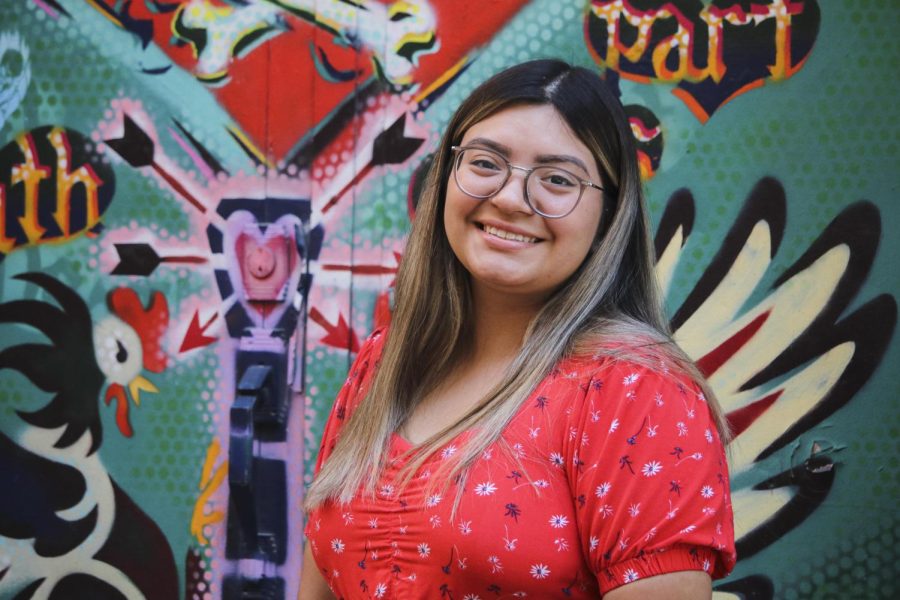‘You don’t have to do it alone’: Mexican-American students reflect on finding their community, cultural identity on campus
October 3, 2022
Based on the 2021 American Community Survey conducted by the U.S. Census Bureau, Hispanic Texans now make up 40.2% of the population compared to 39.4% of non-Hispanic white Texans, making Hispanics the largest demographic group in the state, according to the Texas Tribune.
In consideration of this data and National Hispanic Heritage Month, Mexican-American students reflected on finding Latinx community and cultural identity on campus.
Sophia Gonzalez, the culture chair for the Hispanic and Latinx spirit group Texas Fuego. She said going to a high school with a predominantly Latinx student population was a different experience than college, where she’s had to actively seek out a Hispanic community. The University has a 24.2% Hispanic student population as of fall 2021.
“When I got to college, (the culture shock) kind of took me aback just because back then I took it for granted, and I didn’t realize how important it was,” said Gonzalez, a psychology and sociology senior. “I came to appreciate it a little bit more and I came to miss being around it.”
Before finding Texas Fuego, Gonzalez said she entered her freshman year feeling isolated on campus. Through the spirit group, she’s been able to grow in her relationship with her cultural identity.
“In Texas Fuego, I’m still learning about different nationalities and ethnicities,” Gonzalez said. “Even though I feel like part of a community, I’m still learning, which is really good.”
Finding people who support your growth, both culturally and otherwise, is an important part of the college experience even if it takes time to find, said Roman Garza, a new member of Texas Fuego.
Through on-campus events and making the effort to meet new people, he said he was quickly able to connect with other Hispanic students who made it easier to navigate coming to college.
“If you’re putting yourself out there to meet new people and network, that’s a good thing,” said Garza, a human development and family science sophomore. “Change is uncomfortable. … Finding people who are going to help you out through that (is important). You don’t have to do it alone.”
Antje Idsellis, a member of Minority Women Pursuing Law, said her family instilled pride in her Mexican and German heritage from an early age. Having grown up in Mexico and moving to Texas as an 8-year-old, she’s embraced the diversity of culture on campus while maintaining her cultural pride.
“There’s so many people with Hispanic heritage here,” said Idsellis, an international relations and global studies junior. “It’s something that really ties you to other people within your community. I really like that because, especially at UT, it’s such a big college. There’s so many people and so many different groups. At least you have that one thing which you are really easily able to identify with other people that can bring you together.”
Even though it can be intimidating to enter college as a first-generation Mexican-American college student, Garza said students shouldn’t forget that they were accepted into college for a reason.
“A lot of the times you kind of feel indebted to (where you come from); I know I did,” Garza said. “I guess a major tip would be just knowing that you’re here for a reason, and that reason is because you worked your ass off. … It’s important to know that you’re good enough.”












